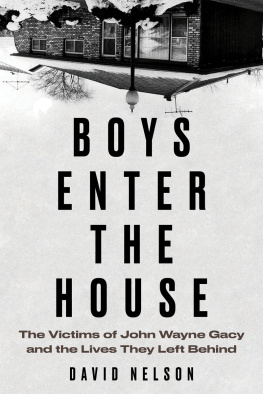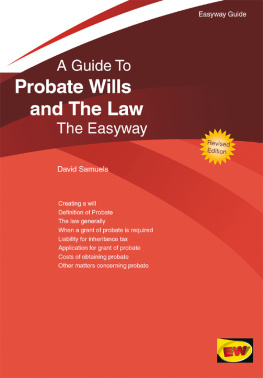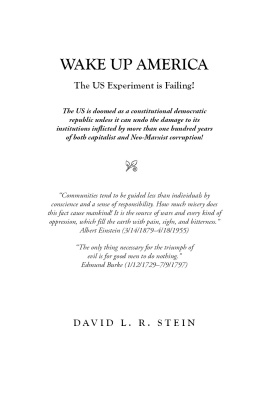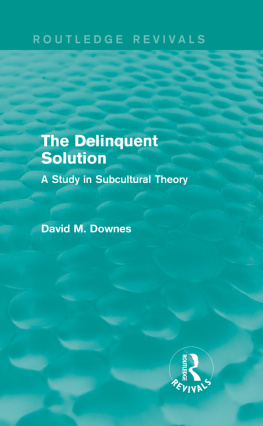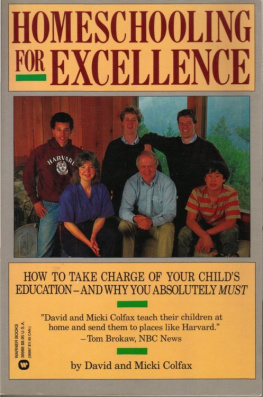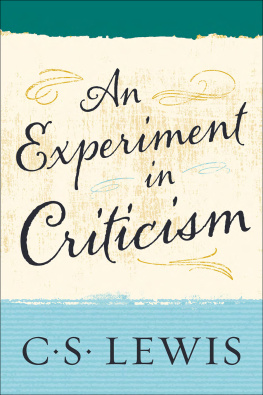NATIONAL INSTITUTE SOCIAL SERVICES LIBRARY
Volume 37
A PLACE LIKE HOME
A PLACE LIKE HOME
A Hostel for Disturbed Adolescents
W. DAVID WILLS
First published in 1970 by George Allen & Unwin Ltd
This edition first published in 2022
by Routledge
2 Park Square, Milton Park, Abingdon, Oxon OX14 4RN
and by Routledge
605 Third Avenue, New York, NY 10158
Routledge is an imprint of the Taylor & Francis Group, an informa business
1970 George Allen & Unwin Ltd
All rights reserved. No part of this book may be reprinted or reproduced or utilised in any form or by any electronic, mechanical, or other means, now known or hereafter invented, including photocopying and recording, or in any information storage or retrieval system, without permission in writing from the publishers.
Trademark notice: Product or corporate names may be trademarks or registered trademarks, and are used only for identification and explanation without intent to infringe.
British Library Cataloguing in Publication Data
A catalogue record for this book is available from the British Library
ISBN: 978-1-03-203381-5 (Set)
ISBN: 978-1-00-321681-0 (Set) (ebk)
ISBN: 978-1-03-206718-6 (Volume 37) (hbk)
ISBN: 978-1-03-206734-6 (Volume 37) (pbk)
ISBN: 978-1-00-320359-9 (Volume 37) (ebk)
DOI: 10.4324/9781003203599
Publishers Note
The publisher has gone to great lengths to ensure the quality of this reprint but points out that some imperfections in the original copies may be apparent.
Disclaimer
The publisher has made every effort to trace copyright holders and would welcome correspondence from those they have been unable to trace.
A PLACE LIKE HOME
A Hostel for Disturbed Adolescents
by
W. David Wills
With a Foreword by
Dame Eileen Younghusband
by the same author
The Hawkspur Experiment
The Barns Experiment
Throw Away Thy Rod
Commonsense about Young Offenders
Homer Lane: A Biography
first published in 1970
This book is copyright under the Berne Convention. All rights are reserved. Apart from any fair dealing for the purpose of private study, research, criticism or review, as permitted under the Copyright Act, 1956, no part of this publication may be reproduced, stored in a retrieval system, or transmitted, in any form or by any means, electronic, electrical, chemical, mechanical, optical, photocopying, recording or otherwise, without the prior permission of the copyright owner. Enquiries should be addressed to the publishers.
George Allen & Unwin Ltd 1970
isbn 0 04 371012 3
printed in great britain
in 11 on 12 point Fournier
by t. & a. constable ltd
edinburgh
TO MRS S.
FOREWORD
by
Dame Eileen Younghusband
The venture described in this book began with a suggestion to the Buttle Trust for Children that valuable experimental work could be done by setting up a hostel for boys leaving schools for maladjusted children who had no settled home and needed a bridge between leaving school and finding for themselves an independent life in the community. The Buttle Trust decided to set up an ad hoc exploratory committee. A member, Miss Leila Rendel, then Director of the Caldecott Community, gave the committee much valuable advice about the necessarily high staff/boy ratio, the type of house that would be needed and the importance of keeping numbers small. In 1959 the Buttle Trust decided to go ahead with the project on the general lines suggested by the committee. The Trust asked the National Association for Mental Health to take responsibility for setting up this pioneer hostel and offered a substantial grant for the purpose. The NAMH agreed to this proposal.
Local authorities in the London area were circularized and assured the NAMH that a subsidized fee of 10 per week would not be prohibitive and that the initiative of providing a hostel would be welcome. Once this was certain, the next problem was to find a suitable house and a warden under whom a staff could be recruited. In the event, the warden came before the house because by a rare stroke of good fortune David Wills, who for years had had an international reputation for his work in residential schools for maladjusted children, unexpectedly became available in 1961 and agreed to become warden of a so far non-existent hostel. The Buttle Trust and the NAMH both seized the opportunity. Thus David Wills was employed while the search for a house went forward. This enabled him to share in the decision about the house which was eventually bought, to visit schools from which boys might come, as well as making contact with local authorities and professional colleagues.
The search for a house went on for many frustrating months. In 1961 the NAMH had to report that 198 houses had been considered, 33 of them in detail, and three times a suitable house had been found but planning permission was refused. Finally, in 1962 a suitable house was found in Bromley and, having overcome all the difficulties of planning permission and adaptation of the premises, the hostel finally came into existence in September 1963 with the admission of the first boy. It was named Reynolds House in memory of Mr H. Reynolds, Director of the Buttle Trust, whose sudden death had cast a shadow over the project for which he had worked so tirelessly.
The purchase and equipment costs of Reynolds House were met by the Buttle Trust, which also met deficiencies in running costs for the first five years. Inevitably costs crept steadily higher over the years while at the same time the difficulty of maintaining a steady number of residents also rocked the financial boat. By 1968 the real per capita cost had risen to nearly 25 per week. High costs are, however, an inevitable difficulty in experiments where small numbers of residents and a proportionately large number of skilled staff are of the essence of the experiment.
The NAMH appointed a management committee to support David Wills and his staff and also took responsibility through its headquarters for servicing the management committee, the accountancy work, maintenance of property, the collection of fees, and negotiations with local authorities on financial matters. The Buttle Trust was also closely and actively concerned with developments at Reynolds House. These are a few background facts by way of introduction to David Wills own vivid account of the project. It is obvious that in much of what he describes he is calling upon his own rich past experience of maladjusted young people as well as his knowledge as a psychiatric social worker. In spite of this sureness of touch and in spite of a strong and united team and an actively interested and helpful psychiatrist and committee of management, it is obvious on almost every page that the work was full of stress for everyone concerned in it, and that only people with much wisdom, skill and compassion could respond appropriately to the residents demands and remain in control of the situation. This book indeed demonstrates, as other accounts of work with severely damaged and homeless young people have done, that to help them into adulthood and independence is no question of providing ordinary lodgings or hostels; rather it calls for extremely expensive facilities run by skilled staff with many of the attributes of archangels. This book will certainly add greatly to our understanding of the personalities, life experience and needs of maladjusted boys in their teens. The lessons to be drawn from it are disturbing in relation both to prevention and treatment. David Wills account shows vividly the extent of deprivation suffered by such young people and the amount that adults must be able to give them if they are to be set upon a less turbulent course in life.


